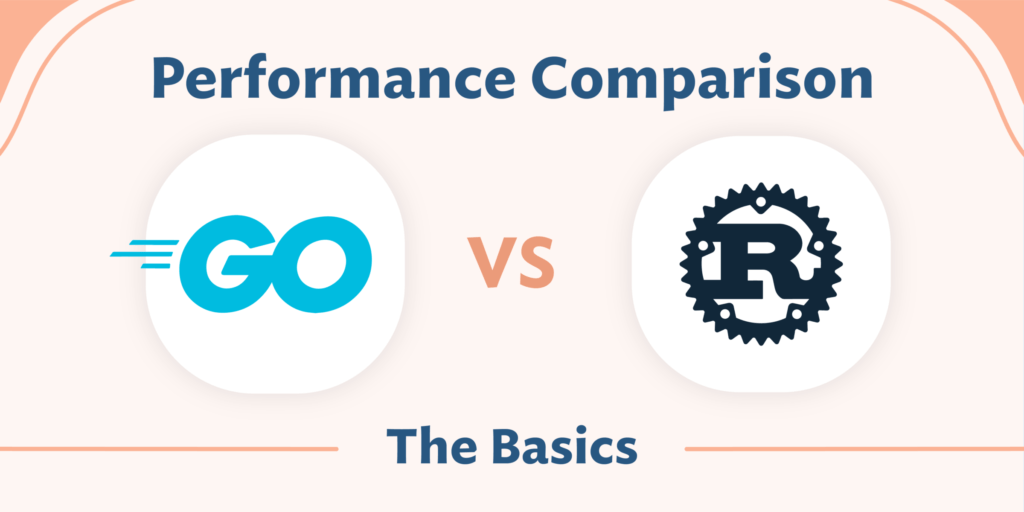Rust is an extremely powerful server-side programming language. Even though many Go developers claim that it will soon be replaced by Golang, will it really be the case? If you give this blog a thorough read, you will see that Rust surpasses Golang in various sectors. However, Rust is an extremely difficult language to master, which makes Golang the obvious choice for most development projects.
So, let us assess the different parameters.
1. Simplicity
- The simplicity of Go is one of its key selling points. Rust development could take several weeks as opposed to Golang development, which might just take a few hours or days. This plays a vital role in the case of collaborations that are severely impacted by this.
- Go programs are easy to comprehend, create, and manage in large teams. Rust, on the other hand, is quite challenging to master. In Rust, productivity might take days or even weeks.
- With the release of version 1.18, Go has certain useful features that were not there before. With further development, there will be several upgrades. This is also the case for Rust as well, as it is an open-source language.
2. Performance
➔ Due to their performance, Golang and Rust are both in high demand. They provide top-notch, fast internal tools for managing dependencies and standard builds. Run-time benchmarks routinely show Rust to be superior to Go. This is due to Rust’s strong control over the operation of threads and the distribution of resources among them.
➔ The formatting tool is the same for Go and Rust. You may use rustfmt and gofmt, respectively, for Rust and Go. You will find that the code gets automatically aligned as per the canonical style.
➔ To assist the programmers to focus on the current issues, Go abstracts away from the architecture’s intricacies. In Go, you will find the exact reverse of this.
Rust is not well suited for complex tasks and huge projects. On the other hand, Go surpasses Rust in the area of development and compilation while having a slower runtime than Rust. Rust takes a longer time to compile because it performs several checks and optimizations.
➔ The deployment performance of both languages is the same. As both languages provide static binary as an output, a developer won’t need an interpreter to run the program.
Meanwhile, if you are having trouble with building a scalable application or a distributable server, you should hire Go developers from Golang.Company. The developers cater to each and every requirement of the clients.

3. Concurrency
❖ Go has outstanding concurrency support. The majority of developers consider goroutines and channels to be Golang’s best features. Rust does, however, support these features as well. Both the Tokyo Library and the Standard Library in Rust offer access to them.
❖ Goroutines are essentially thin threads. These Go objects are runtime managed and scheduled across OS threads. Developers can create the goroutines fast and cheaply, and they have the ability to adjust the stack size over time. Instead of using the far more expensive OS threads, developers have the option to build thousands of goroutines.
❖ The aforementioned fix, meanwhile, has a drawback. The Go programming language has overhead in terms of memory and CPU. Since Rust aims to reduce even the slightest overheads, this flaw is readily addressed.
4. Error Handling
- Both programming languages have a similar approach to handling errors. The functions in Golang return a number of values in addition to the error. The enum, a specialized type introduced by Rust, has two subtypes: error type and result type.
- It is true and developers have also found that error handling in Rust is less verbose than in Golang. How? This is achieved by unpacking the error message with a question mark (?). Having said that, error handling is smooth and systematic in both Rust and Go.
- These methods help programmers identify functions where an error is not being handled effectively. Because of this, writing code in Go and Rust is simple and secure.
5. Memory Safety and Security
➢ In Rust, a developer has to perform a multitude of tasks in order to ensure the security of the code. This is because of the ownership mechanism, which checks for memory safety at the time of compilation. Rust is so secure that there is absolutely zero chance of unsafe memory passing directly through the Rust compiler. You will come across a number of concurrency paradigms in Rust that ensures zero lapses in memory safety.
➢ Go, unlike Rust, is not memory secure. Developers are able to implement slices and interfaces in Go, with the help of non-atomic multi-word structs. Furthermore, data races lead to inaccurate values, which might harm memory.
➢ However, Go is just as safe as Rust when it comes to handling use-after-free and dangling pointers. Go has an automated garbage collector to lessen the issues brought on by memory leaks. As per the concept, every object is supposed to have an owner. The owner has the ability to lend it to someone else.
➢ In terms of performance, Rust surpasses Golang. Without a garbage collector, Rust handles regular memory problems. Rust also makes it possible to create a variety of immutable or changeable references.
6. Community
- The Golang programming language entered the market in 2009, and Rust followed in 2013. This gives Go more maturity, and its simplicity increases its allure.
- Compared to Rust, Go’s libraries and frameworks have undergone more development. Developers find this to be very true in the case of web development applications.
- However, the community of Rust developers is very collaborative, and they go out of their way to encourage one another when they find the development process to be daunting. Since it is an open-source language, Rust is always being updated, improved, and modified.
7. Career Opportunities
- The prospect of a career is the final consideration you need to make. If making it into the top corporate firms is your goal, you should concentrate on the market with the most job options. Developers who are obsessed with Rust will have a difficult time finding a good job on the market. However, Golang offers a wide range of career options.
- The majority of the largest corporations, including Google, Twitch, SendGrid, Uber, Dailymotion, Soundcloud, etc., use Golang. Nevertheless, a few reputed firms, including Brave (Github), Atlassian, Discord, Amazon, etc., are using Rust.
- An average Rust developer earns around $120,000 a year. On the other hand, the typical yearly salary for Golang engineers is roughly $135,000.
Although many of the aforementioned parameters favor Rust, it ultimately depends on your requirements. Golang is the language to opt for if developing websites, microservices, and distributable servers are your goals. Rust is a better option if you want to work on CLI apps owing to its libraries, string processing capabilities, etc.















